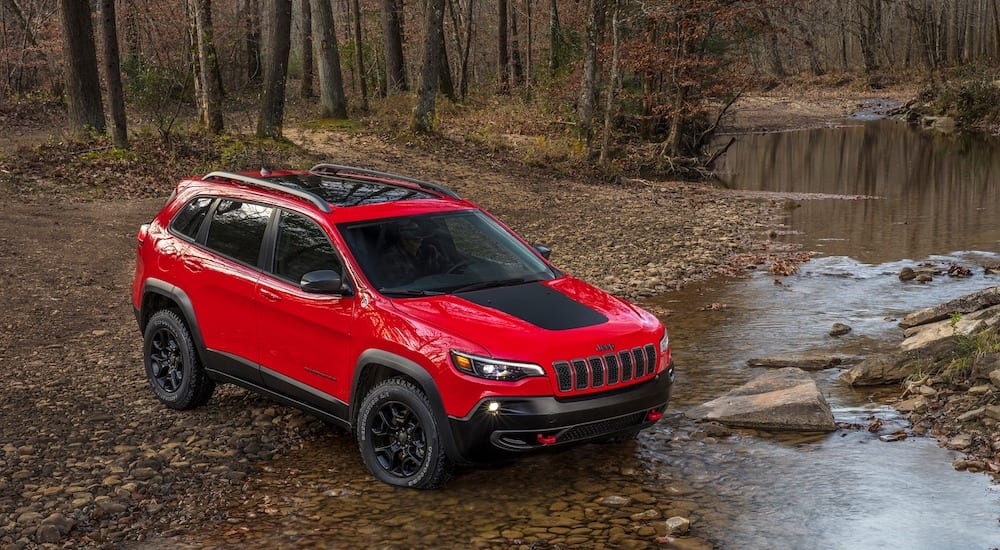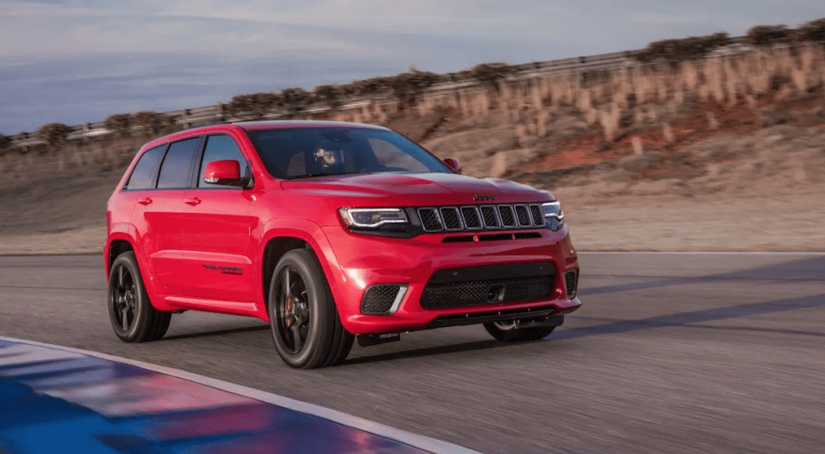In the second quarter of 2018, 30.41 percent of the new cars in the US were on lease. There are several advantages to leasing a vehicle rather than purchasing one. However, you need to be prepared for all the steps and logistics involved before you begin the process. It’s better to understand how the process works prior to meeting with the leasing agent at the dealership, so you can be better informed and ask the right questions when you are there. Consider what you need to know before signing your Jeep lease.
What to Ask Before You Lease Your Jeep
You are your best advocate with regard to signing a lease for your Jeep. You’ll need to research and be prepared for all that is involved in this process. There are some questions that you need to ask before leasing your Jeep.
- Is the dealership offering any special leasing offers, incentives, or rebates?
- Is the Jeep’s residual value high so you’ll have a lower base monthly payment?
- What is the interest rate, based on your credit rating, that you’ll get?
- What is the amount of mileage included in the lease agreement?
- What are the fees and the down payment you’ll need to pay?
- Can the leasing agreement be transferred to another person?
Do yourself a favor and make sure you find out all the details about special offers and the fine print involved in the contracts. Vehicles with a higher residual value have a lower depreciation value and give you a lower base monthly payment. Your credit rating affects the interest rate and the monthly payment amount. Review the mileage requirements so you don’t end up paying additional costs. Make sure you understand what fees are required and how much you’ll need to pay down. Depending on the circumstances, you may want to transfer the lease to someone else before the lease has ended. Many leasing companies permit such transfers. However, there are always exceptions and some dealerships won’t allow this.
Follow These Jeep Leasing Tips
Before you go to the dealership to see what leasing offers are available, you should know what Jeep vehicle you are looking for. If you know what you want, you can save time with the entire leasing process. You have a variety of options to choose from in the line of Jeep vehicles like the all-new Wrangler, Grand Cherokee, Cherokee, Compass, Renegade, and Wrangler JK. Of course, there is the all-new impressive 2020 Jeep Gladiator to consider.
Here are some Jeep leasing tips to think about:
Know the Facts – When you lease a car, this automatically shows up as a credit inquiry and will have a small effect on your credit rating. However, if you maintain on-time lease payments, you will avoid dropping your credit score. It is important to note that a lease payment will not adversely affect your credit score as much as high credit card use would.
Learn the Terms – You can get lost if the leasing agent starts discussing leasing terminology that you don’t understand. Some of that terminology includes the following: residual value, capitalized cost, capital cost reduction, drive-off fee, market value, acquisition fee, and money factor or rate. Check out this article in Smart About Money to get more information about what these terms mean.
Negotiate Terms – You can negotiate some factors of the lease agreement like tire fees, document fees, etc. However, having a great credit rating will help you negotiate better than if you had a bad score. Many salespeople at the dealership are open to some negotiating in the interest of getting the lease signed and you driving off their lot in the new Jeep of your choice.
Do Your Homework – Diligently research the type of Jeep you’re looking for, locate the best dealership that is offering the price most suited to your financial needs, and come to the negotiating table well-informed and ready to get the best deal.

Learn from These Leasing Mistakes
You can make mistakes when signing a lease for your next Jeep if you are not familiar with all the factors involved in the process. Consider some of these common mistakes people have made when leasing a vehicle, so you can learn from their mistakes and prevent yourself from making them.
Credit Score – walking into the dealership without knowing your current credit score is a mistake. The cost of your lease is based on your credit rating. When you find out your credit score beforehand, you will have more leverage with regard to negotiating any aspects of the lease—and how far you can actually go with your talks with the leasing agent.
Shopping Around – another common mistake people make is that they go to the first dealership they find and don’t shop around for the best deal. Checking out leasing prices at various dealerships will be time-consuming and can seem like a waste of your time. However, when you find the best deal, it will be worth it.
Total Cost – Don’t focus on the low monthly payment that the leasing agent may be promoting. When comparing prices of lease offers among dealerships and which one fits your monthly budget, you need to figure in additional costs and how much you need to put down.
Mileage Estimate – Pay attention to the number of allowed mileage that is included in the lease agreement. You need to estimate how many miles you drive annually so you can be prepared for how much out-of-pocket expense you’ll need to pay for any miles you drive over the allotted amount.
Proper Coverage – Don’t make the mistake of not getting the right insurance coverage for this leased Jeep. Thoroughly review the lease agreement and ask any questions of the leasing agent and your insurance agent to make sure you have proper coverage. Many leasing agreements require insurance which includes gap coverage. You need this additional coverage in case the Jeep gets stolen, wrecked, or totaled in a really bad accident. Without this additional coverage, you may be liable for thousands of dollars if something unexpected happens.
Fine Print – Many people do not like to read the fine print in contracts. However, you are not wasting time by reading every part of the lease agreement. You need to be aware of any additional costs that have been added to the lease agreement that you may not realize or aren’t specifically discussed with the leasing agent.
Quality Care – Be careful not to get lazy with the care of your leased vehicle. Check the fine print to ascertain your responsibility for excessive wear and tear on the Jeep. This measure of wearing on the vehicle is totally up to the leasing company. Don’t assume anything. Always check through the leasing agreement to identify what is considered “normal wear” and what you will be responsible for in out-of-pocket costs.
Keep the Lease – Do everything within your power to keep to the terms of the lease and don’t break the contract prior to the end date. If you violate stipulations in the lease or decide to terminate it early, you can be on the hook for a huge financial cost depending on the company’s demands—and you risk getting this reported on your credit report.
Do your due diligence and research your options when preparing for your new Jeep lease. When you are more informed about your options and all that is involved in signing a lease, you will increase your chances of getting the best deal for your budget and driving off the lot with the right Jeep for your current driving and lifestyle needs.



